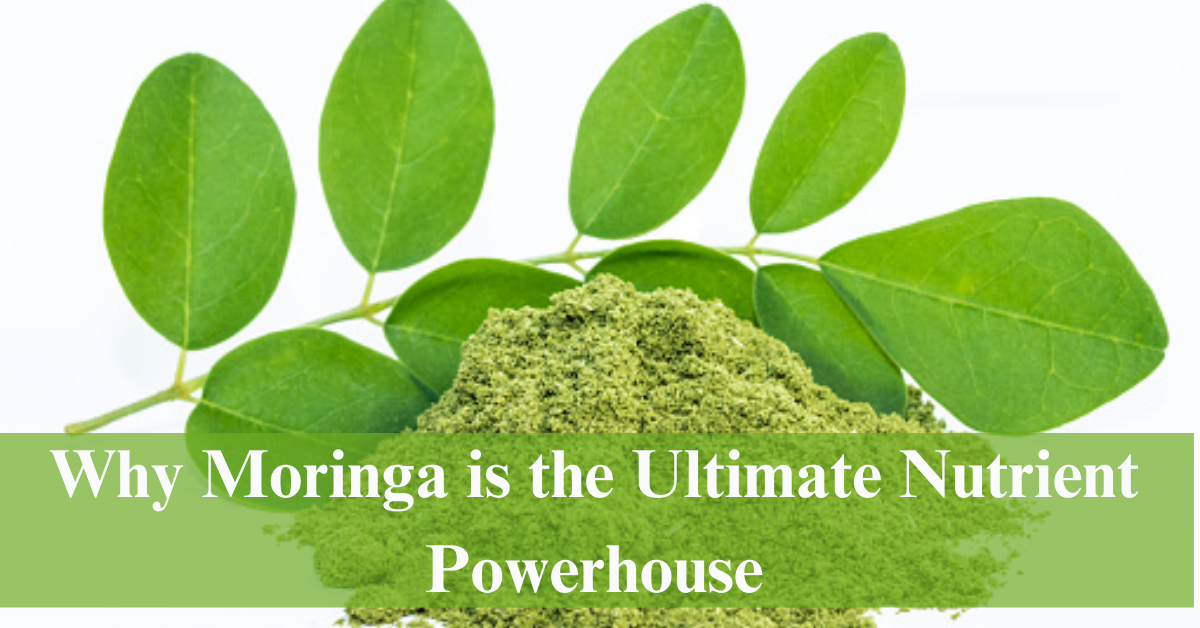Moringa, often referred to as the “Miracle Tree,” has gained significant attention in the health and wellness community. Originating from the foothills of the Himalayas in India, it has been cultivated for its nutritional and medicinal benefits for over 4,000 years.
Moringa is commonly referred to as the “Drumstick Tree” due to its long, slender, triangular seed pods that resemble drumsticks.
Nutritional Powerhouse
Moringa leaves are incredibly nutrient-dense. They are rich in:
- Vitamins: A, C, and E
- Minerals: Calcium, potassium, and iron
- Protein: Contains all nine essential amino acids
- Antioxidants: Quercetin, chlorogenic acid
These nutrients contribute to moringa’s ability to boost overall health and support bodily functions.
@theSwasth.com
Health Benefits of Moringa
1. Rich in Antioxidants
Moringa is loaded with antioxidants that help fight free radicals in the body. This can reduce oxidative stress and lower the risk of chronic diseases such as heart disease and type 2 diabetes.
2. Anti-Inflammatory Properties
Moringa contains compounds like isothiocyanates, flavonoids, and phenolic acids, which have been shown to have anti-inflammatory effects.
3. Supports Heart Health
Moringa help reduce cholesterol levels and prevent plaque formation in arteries, contributing to improved heart health and reduced risk of cardiovascular diseases.
4. Improves Digestive Health
The high fiber content in moringa aids in digestion and can help prevent constipation. Additionally, its antimicrobial properties can combat various digestive disorders.
5. Enhances Skin and Hair Health
Moringa oil is used in the cosmetic industry due to its moisturizing and nourishing properties. It helps improve skin tone and texture and can promote hair growth by providing essential nutrients to the scalp.
6. Boosts Immunity
The high vitamin C content in moringa enhances the immune system, helping the body fight off infections more effectively. Its antimicrobial and antifungal properties also protect against various pathogens.
7. Regulates Blood Sugar Levels
Studies suggest that moringa can help lower blood sugar levels, making it beneficial for individuals with diabetes. The plant’s chlorogenic acid helps moderate blood sugar levels post-meal.
How to Use Moringa
Incorporating moringa into your diet is easy & versatile. Here are some popular ways to use it:
- Powder: Add moringa powder to smoothies, soups, or teas.
- Capsules: Take moringa supplements as directed by a healthcare provider.
- Fresh Leaves: Use fresh moringa leaves in salads or as a garnish.
- Oil: Apply moringa oil to skin and hair for cosmetic benefits.
No. 1 Breakfast for GUT HEALTH
Who shouldn’t eat moringa?
Certain individuals should be cautious or avoid consuming moringa:
- Pregnant Women: Moringa has been traditionally used to induce abortion in high doses and may have uterine stimulant effects, so pregnant women should avoid it.
- Breastfeeding Women: There is insufficient reliable information about the safety of moringa during breastfeeding. It’s best to avoid it unless recommended by a healthcare provider.
- People Taking Medications: Moringa may interact with certain medications. For example, it can lower blood pressure and blood sugar levels, so individuals taking medications for these conditions should monitor their levels closely if they choose to consume moringa.
- People with Low Blood Pressure: Moringa has been shown to lower blood pressure. If you already have low blood pressure or are on medications that lower blood pressure, consuming moringa could potentially cause it to drop too much.
- Individuals with Kidney Issues: Moringa contains moderate amounts of oxalates, which can contribute to kidney stone formation in susceptible individuals. Those with a history of kidney stones or kidney disease should be cautious with moringa.
- Allergy Concerns: Some individuals may be allergic to moringa. Allergic reactions could range from mild symptoms like skin rashes to more severe symptoms requiring immediate medical attention.
- Individuals with Hypothyroidism :Moringa may affect thyroid function and interfere with thyroid medications.
The Bottom Line
Moringa is a powerful plant with numerous health benefits. Its rich nutritional profile and medicinal properties make it a valuable addition to any diet. Whether you’re looking to boost your immune system, improve heart health, or enhance your skin and hair, moringa has something to offer.
Embrace the goodness of moringa and experience the miraculous benefits of this “Miracle Tree.” For more information and recipes, check out our recommended source – Healthline.com and explore the transformative power of moringa in your daily life.
- 9 Natural Ways to Balance Your Hormones
- The Connection Between Acne and Hormonal Imbalance in Females
- Why You Get Sleepy When You Meditate, Plus 9 Tips to Perk Up
- Symptoms of Heart Attacks in Women
- The Link Between Vitamin D and Hormones

